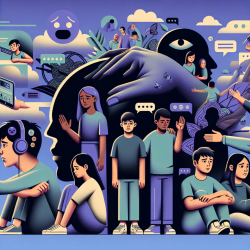Introduction
Medical students often face intense stress due to the demanding nature of their education. Understanding how they cope with stress can lead to better support systems and improved mental health outcomes. A recent study titled How medical students cope with stress: a cross-sectional look at strategies and their sociodemographic antecedents provides valuable insights into the coping mechanisms of medical students and how these vary by gender and year of study.
Key Findings
The study surveyed 400 medical students at the University of Saskatchewan, utilizing the Brief COPE inventory to assess their coping strategies. The results revealed several important patterns:
- Most students used adaptive coping strategies, such as active coping, emotional support, and planning.
- Females were more likely to engage in behavioral disengagement, while males were less likely to seek emotional and instrumental support.
- Third-year students exhibited higher use of denial as a coping strategy compared to other years.
Implications for Practitioners
These findings have several implications for educators and mental health practitioners working with medical students:
- Gender-Sensitive Support: Recognize the different coping strategies employed by male and female students. Encourage males to seek more social support and help females find active coping strategies.
- Year-Specific Interventions: Third-year students may benefit from targeted interventions to address the high levels of denial and other maladaptive strategies.
- Promote Adaptive Coping: Encourage the use of adaptive coping strategies across all years, such as planning and seeking support, to improve resilience and reduce stress.
Encouraging Further Research
While this study provides valuable insights, further research is needed to explore the underlying causes of these coping behaviors and how they affect long-term mental health outcomes. Future studies could investigate the impact of cultural and environmental factors on coping strategies, as well as the role of non-binary gender identities in coping behaviors.
Conclusion
Understanding the coping strategies of medical students is crucial for developing effective support systems that enhance their well-being and academic performance. By addressing gender differences and year-specific challenges, educators and mental health professionals can create a more supportive environment for medical students.
To read the original research paper, please follow this link: How medical students cope with stress: a cross-sectional look at strategies and their sociodemographic antecedents.










